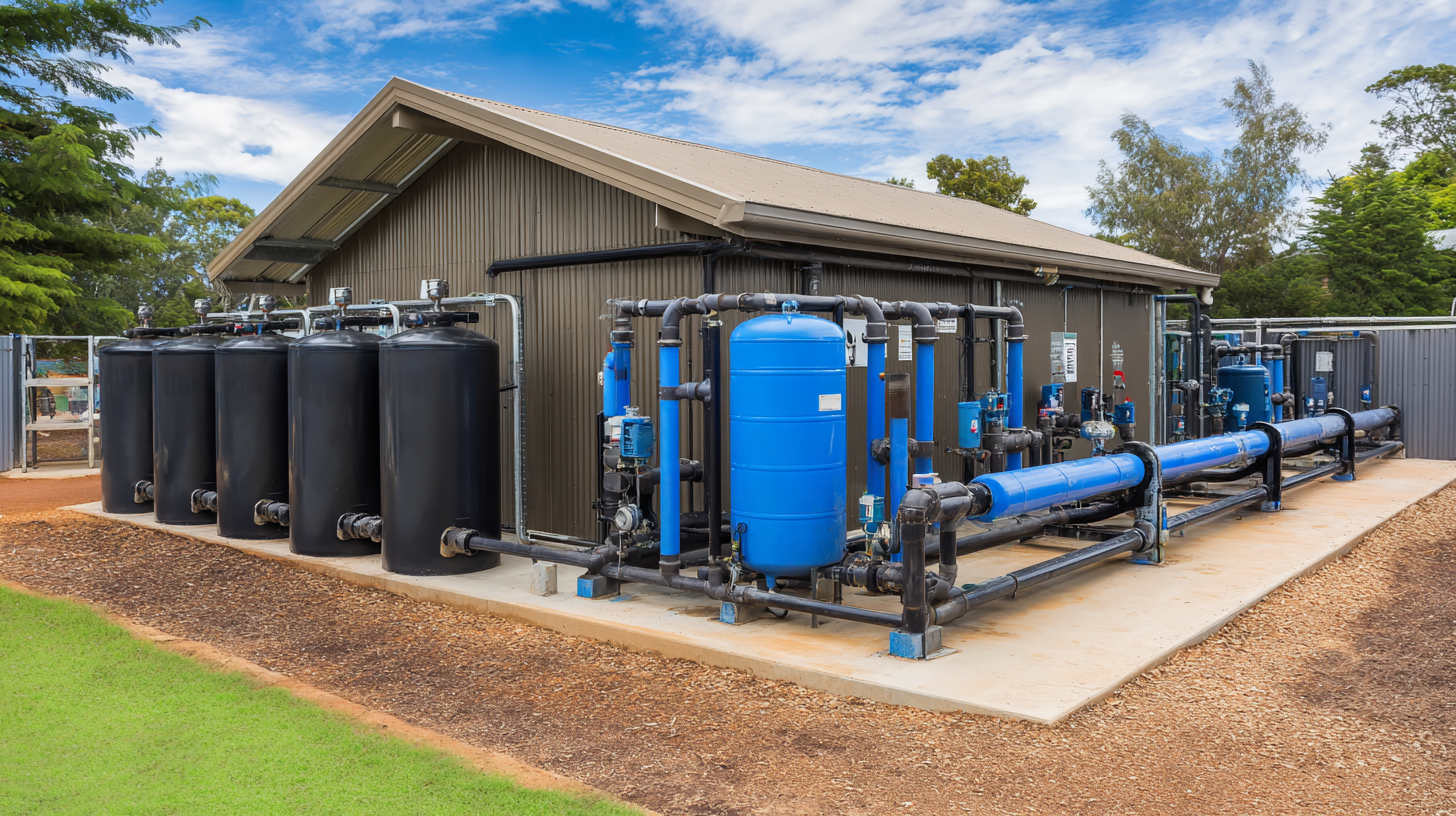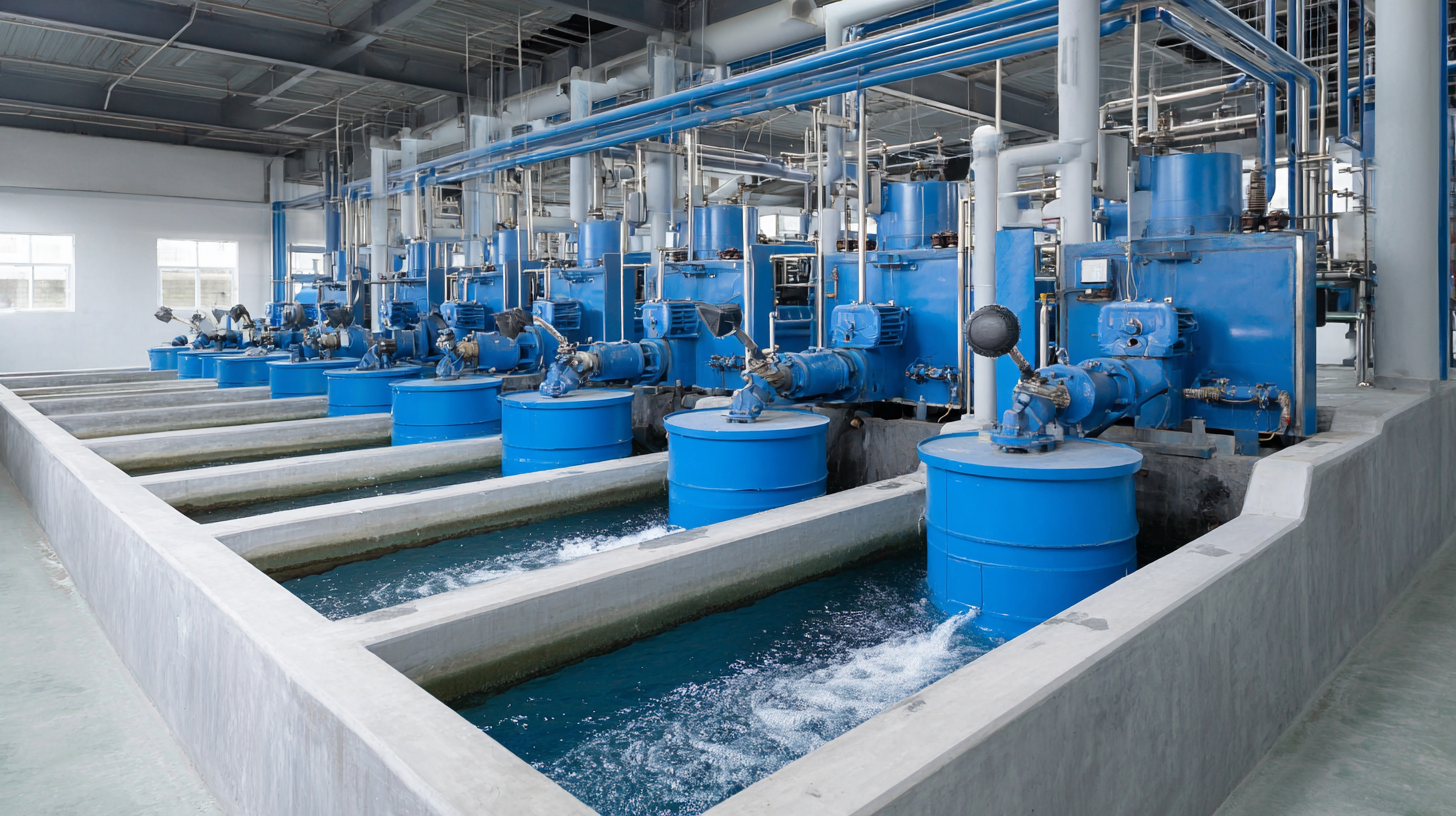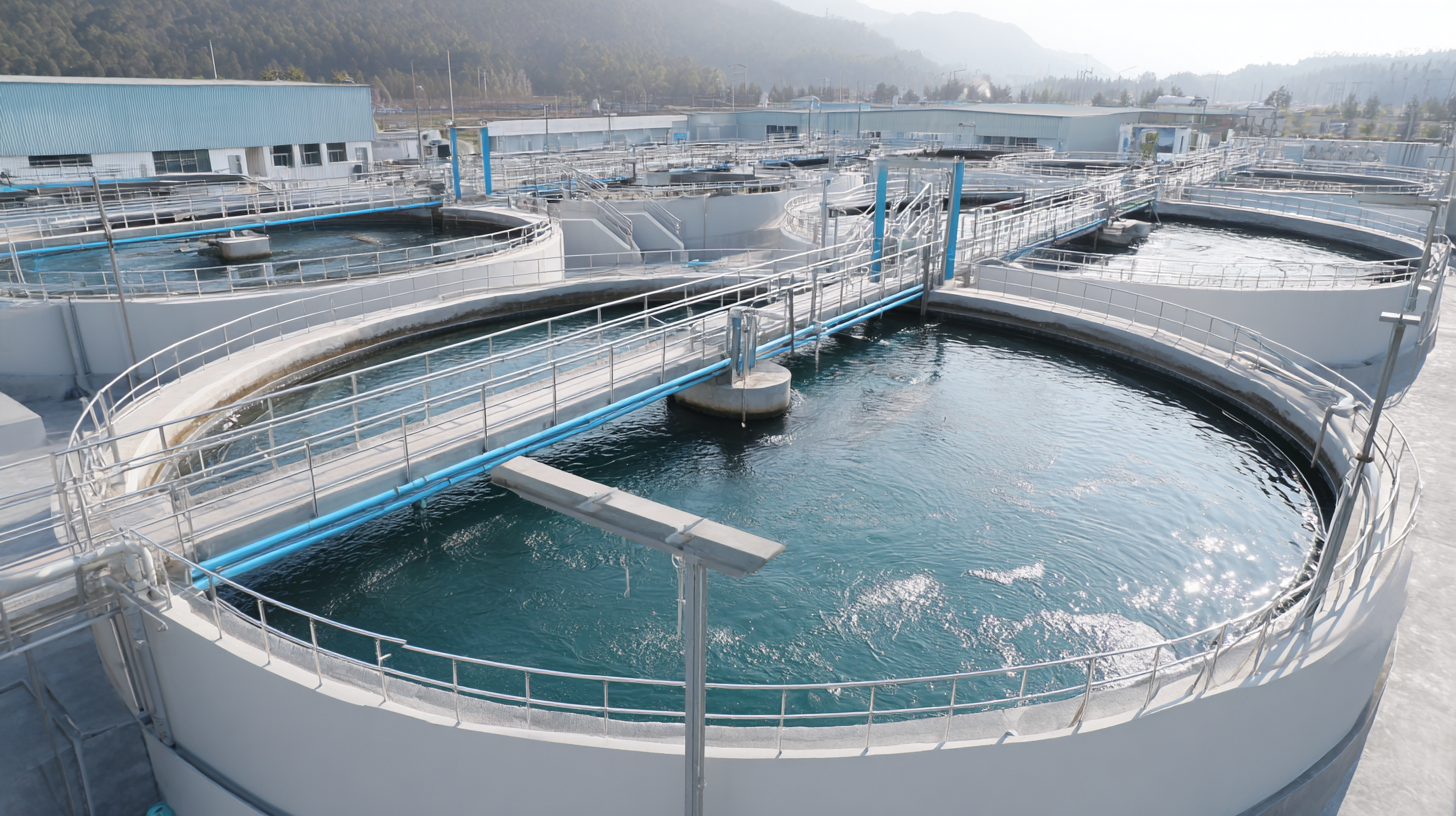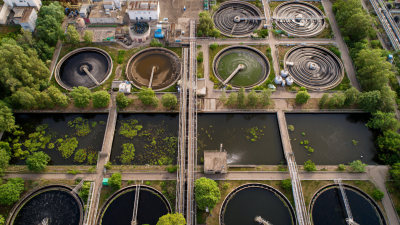Top 7 Wastewater Treatment Systems: Upgrade Your Water Management Solutions Today!
In the face of growing environmental concerns and increasing regulatory pressures, the importance of effective wastewater treatment systems cannot be overstated. According to a report by the Global Water Intelligence, the global wastewater treatment market is projected to reach $607 billion by 2025, driven by the rising population, urbanization, and the need for sustainable water management solutions. This surge highlights the essential role that innovative wastewater treatment systems play in ensuring safe and efficient management of water resources.
As industries and municipalities grapple with aging infrastructure and the demands of modern wastewater challenges, upgrading existing systems is imperative. Recent studies indicate that approximately 80% of the world's wastewater is released into the environment without proper treatment, leading to significant health and ecological risks. Therefore, investing in advanced wastewater treatment systems not only helps in compliance with stringent regulations but also contributes to water recycling initiatives, ensuring that water remains a valuable resource for future generations.
In this context, exploring the top wastewater treatment systems available today becomes crucial for decision-makers seeking to enhance their water management solutions. By adopting state-of-the-art technologies, organizations can improve their operational efficiency and minimize their environmental impact, paving the way for a more sustainable future.

Current Trends in Wastewater Treatment Technologies for Enhanced Efficiency
The realm of wastewater treatment technologies is witnessing a transformative phase, driven by advancements in efficiency and sustainability. Recent initiatives, such as the joint issuance of a high-quality development implementation plan for water-saving equipment by key governmental bodies, highlight a growing commitment to innovative water management solutions. This strategic move aims to enhance the efficiency of both industrial and municipal wastewater systems, ensuring better resource utilization while minimizing environmental impact.

Furthermore, the integration of artificial intelligence within the industry marks a new era of smart wastewater management. The push for data-driven approaches facilitates optimized operations and resource conservation, ultimately supporting sustainable development goals. As the global market for water and wastewater treatment systems is projected to experience significant growth, stakeholders are increasingly investing in cutting-edge technologies that promise enhanced efficiency and a reduced carbon footprint. This trend signifies not only a shift in operational methodologies but also an overarching goal of aligning wastewater treatment processes with pressing ecological needs.
Key Features of the Top 7 Wastewater Treatment Systems in 2025
As industries increasingly prioritize sustainability, wastewater treatment systems have advanced significantly, integrating innovative technologies to enhance water management solutions. According to the Global Water Intelligence report from 2023, the global market for wastewater treatment systems is projected to reach $90 billion by 2025. This growth reflects the rising demand for effective treatment solutions that not only comply with strict regulations but also address environmental concerns.
The top wastewater treatment systems of 2025 are characterized by several key features. Among them, energy efficiency stands out, with systems like membrane bioreactor (MBR) technology achieving up to 90% energy savings compared to traditional methods. Additionally, real-time monitoring capabilities enabled by IoT integration help operators optimize processes and reduce operational costs. Furthermore, modular and scalable designs allow for flexibility in implementation, making these systems suitable for various industrial scales. As highlighted in the "2023 Blue Green Alliance Report," adopting advanced wastewater treatment systems can reduce harmful emissions and promote a circular economy, fostering responsible water usage in various sectors.
Top 7 Wastewater Treatment Systems in 2025
Comparative Analysis: Cost-Efficiency of Advanced Wastewater Treatment Solutions
When assessing wastewater treatment systems, cost-efficiency is a pivotal factor that can significantly impact operational expenditures and sustainability goals. Advanced technologies such as membrane bioreactors (MBRs) and activated sludge systems offer varying degrees of efficiency and effectiveness, but their initial investment and maintenance costs can differ widely. Understanding the long-term financial implications of these systems is essential for making informed decisions that balance upfront costs with operational savings.
**Tip:** Before proceeding with a wastewater treatment system upgrade, conduct a thorough cost-benefit analysis. Consider factors such as energy consumption, potential chemical use, and the lifespan of the equipment. This will help you identify which system offers the best return on investment.
Moreover, the choice of technology can also influence compliance with environmental regulations. Systems that are more efficient in removing contaminants may reduce the likelihood of penalties and promote better water quality. By investing in the right technology, organizations can not only improve their wastewater management capabilities but also foster community trust through responsible environmental stewardship.
**Tip:** Stay informed about incentives or grants that may be available for upgrading to advanced wastewater treatment systems. Many governments and organizations offer financial support for environmentally sustainable practices, which can alleviate some of the financial burden associated with the initial investment.

Impact of Regulatory Changes on Wastewater Management Practices
Recent regulatory changes have significantly reshaped wastewater management practices across various industries. With stricter guidelines being enforced to protect water bodies from contamination, facilities must adapt swiftly to stay compliant. The Environmental Protection Agency (EPA) emphasizes that nearly 30% of wastewater facilities fail to meet existing regulatory standards, prompting urgent upgrades to treatment systems. Industry reports indicate that investing in advanced technologies can improve compliance rates and reduce operational costs by up to 20%.
When upgrading wastewater treatment systems, consider adopting innovative solutions such as membrane bioreactors (MBRs) or constructed wetlands. These technologies not only enhance treatment effectiveness but also allow for the recovery of valuable resources, like nutrients and water, from wastewater. A recent study showed that MBRs could reduce harmful pollutants by more than 90%, making them an optimal choice for facilities facing regulatory pressures.
Tips: Always stay informed about local regulations, as compliance requirements can vary significantly across jurisdictions. Investing in real-time monitoring systems can provide early warnings about potential compliance issues, allowing facilities to address them proactively. Additionally, engaging with industry experts can help identify the most suitable technologies and practices tailored to your wastewater management needs.
Top 7 Wastewater Treatment Systems: Upgrade Your Water Management Solutions Today!
| System Type | Technology Used | Efficiency (%) | Ideal Applications | Impact of Regulations |
|---|---|---|---|---|
| Activated Sludge | Biological Treatment | 90 | Municipal Wastewater | Requires compliance with BOD and TSS limits |
| Membrane Bioreactor | Membrane Filtration | 95 | Industrial and Municipal | Facilitates strict effluent discharge regulations |
| Sequencing Batch Reactor | Batch Processing | 85 | Small Communities | Eases compliance with nutrient removal requirements |
| Constructed Wetlands | Natural Treatment | 75 | Agricultural Runoff | Supports sustainable wastewater management practices |
| Rotating Biological Contactor | Fixed Film Treatment | 80 | Food Processing Plants | Fulfills organic matter discharge limits |
| Dissolved Air Flotation | Physical-Chemical Treatment | 70 | Oil and Grease Removal | Enhances compliance with oil discharge regulations |
| Advanced Oxidation Processes | Chemical Treatment | 98 | Pharmaceutical Manufacturing | Addresses stringent removal standards for contaminants |
Future Innovations in Wastewater Treatment: Opportunities for Sustainable Water Management
As we approach 2024, the wastewater treatment sector stands at the forefront of sustainable water management innovations. With nearly half of the global population projected to face significant water scarcity by 2030, the urgent need for advanced wastewater solutions is more critical than ever. Reports indicate that the smart water and wastewater treatment market is expanding rapidly, driven by stringent regulations and the demand for higher quality services. This aligns with a broader shift towards green innovation, a movement that is being supported by various international initiatives aimed at enhancing technology transfer and environmental management.
Innovative systems like decentralized greywater recycling technologies exemplify how we can drastically reduce both water consumption and wastewater generation—by up to 45%. Such advancements not only help mitigate the challenges posed by climate change but also embody our responsibility towards effective resource management. The recent discussions at global forums highlight a crucial moment, where collaboration across sectors can lead to breakthroughs in wastewater treatment that will pave the way for sustainable development and improved public health. As we transition into the new year, embracing these innovations is imperative for building resilient cities and safeguarding our most precious resource, water.
Related Posts
-

Revolutionizing Our Future: The Innovative Advances in Wastewater Treatment Systems
-

How to Optimize Sewage Water Treatment for Environmental Sustainability
-

What Are Waste Water Treatment Systems and How Do They Work?
-

Exploring Innovations in Sewer Treatment Plants at China Import and Export Fair 2025
-

How Wastewater Treatment Systems Are Revolutionizing Environmental Sustainability
-

Understanding the Wastewater Treatment Process: 90% of Water Can Be Recycled with Effective Methods


